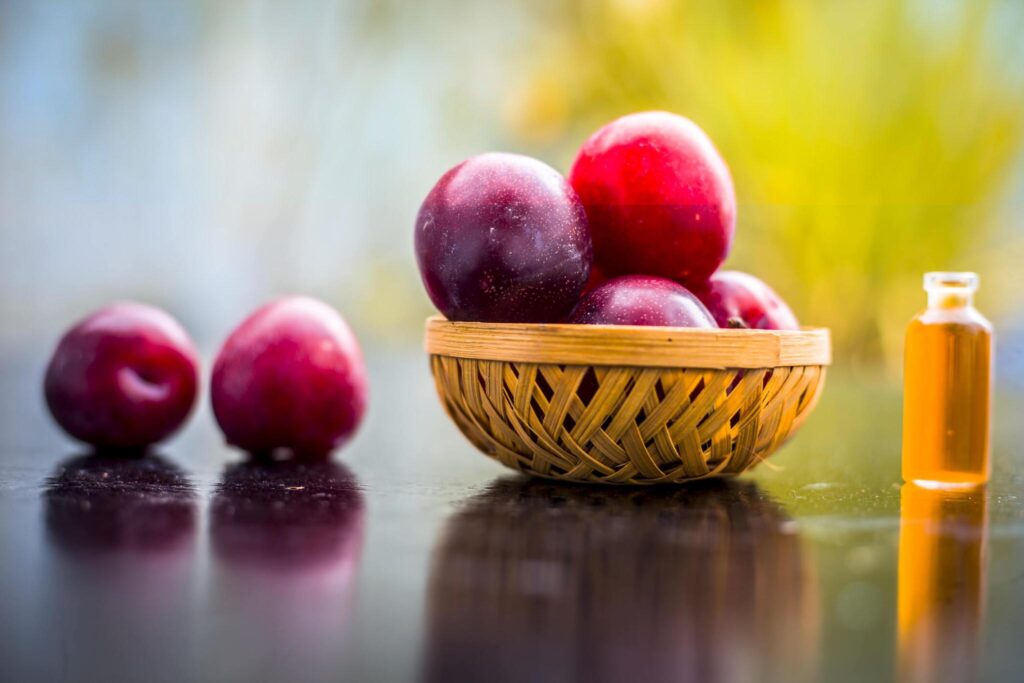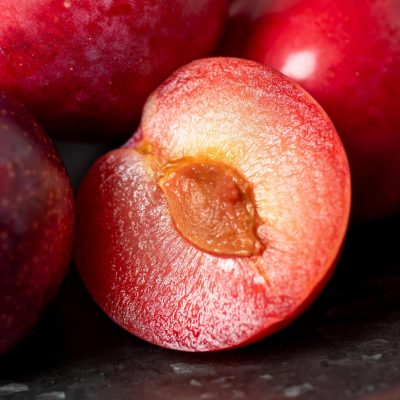Our Exclusive Items
Alubukhara




Alu Bukhara, also known as Plum, is a sweet, juicy summer fruit that helps to keep one’s health strong and powerful. It is a fruit that provides many benefits if eaten regularly. It may help maintain body weight and prevent diabetes, obesity, and heart disease in people with normal blood sugar levels. It lowers cholesterol, improves blood circulation and quality, and helps to maintain proper heart health. It also improves vision, aids digestion—helping the body break down food more easily into nutrients—and maintains healthy skin by boosting collagen production. Alu Bukhara can also combat cancer due to the large number of antioxidants present.
Patel Trading Co LLC is a prestigious trading company specializing in the business of Alu Bukhara. Since our establishment in 2011, we have been committed to providing our customers with top-quality Alu Bukhara. Our Alu Bukhara is sourced from some of the world’s leading Alu Bukhara-producing countries.
Our dedication to quality and customer satisfaction has positioned us as a trusted partner for businesses in need of Alu Bukhara. Our deep understanding of the Alu Bukhara market allows us to offer competitive prices and ensure a consistent supply of this essential fruit.
At Patel Trading Co LLC, we believe in fostering long-term relationships with our suppliers and customers, built on mutual trust and respect. We are proud of our track record in the Alu Bukhara trading industry and look forward to continuing to serve our customers with the same dedication and integrity.
Alubukhara, also known as dried plum or prune, is a type of dried fruit derived from various plum cultivars. It offers a range of health benefits and is commonly used in culinary dishes and traditional medicine practices. Here’s a breakdown of its potential health benefits and culinary uses:
Health Benefits:
Digestive Health: Alubukhara is rich in dietary fiber, which promotes digestive health by preventing constipation and promoting regular bowel movements. It contains both soluble and insoluble fiber, which aid in the digestion and absorption of nutrients.
Bone Health: Alubukhara contains essential minerals like potassium, magnesium, and vitamin K, which are important for maintaining strong and healthy bones. Regular consumption of alubukhara may help prevent bone-related disorders such as osteoporosis.
Heart Health: The potassium content in alubukhara helps regulate blood pressure and maintain heart health. Additionally, the antioxidants in alubukhara may help reduce the risk of heart disease by preventing oxidative damage to the cardiovascular system.
Blood Sugar Regulation: Alubukhara has a low glycemic index, meaning it does not cause a rapid increase in blood sugar levels after consumption. It may help regulate blood sugar levels and improve insulin sensitivity, making it suitable for individuals with diabetes or those at risk of developing the condition.
Weight Management: Despite being sweet and energy-dense, alubukhara can be included in a weight management diet due to its high fiber content. The fiber helps promote satiety and reduce appetite, leading to better control of calorie intake.
Antioxidant Properties: Alubukhara is rich in antioxidants like phenolic compounds, flavonoids, and vitamins A and C. These antioxidants help neutralize harmful free radicals, reducing oxidative stress and lowering the risk of chronic diseases like cancer and heart disease.
Improved Immunity: The vitamins and minerals in alubukhara, particularly vitamin C, help support a healthy immune system. Regular consumption of alubukhara may help strengthen the body’s natural defenses against infections and illnesses.
Culinary Uses:
Snacking: Alubukhara can be enjoyed as a nutritious snack on its own or mixed with other dried fruits, nuts, or seeds.
Baking: Alubukhara can be used as an ingredient in various baked goods such as muffins, cakes, cookies, and bread. It adds natural sweetness, moisture, and flavor to baked recipes.
Cooking: Alubukhara is commonly used in savory dishes such as stews, tagines, and rice pilafs. It adds a sweet and tangy flavor to the dish and pairs well with meats, poultry, and vegetables.
Compotes and Chutneys: Alubukhara can be stewed with water, sugar, and spices to make compotes or chutneys. These sweet and tangy condiments can be served with meats, cheeses, or desserts.
Smoothies and Juices: Alubukhara can be blended into smoothies or juices for added sweetness, flavor, and nutritional benefits. It pairs well with other fruits like apples, bananas, and berries.
Product List
Cloves
This is a short description elaborating the service you have mentioned above.




Kitchen
This is a short description elaborating the service you have mentioned above.




Office Space
This is a short description elaborating the service you have mentioned above.





Bedroom
This is a short description elaborating the service you have mentioned above.





Living Room
This is a short description elaborating the service you have mentioned above.





Kitchen
This is a short description elaborating the service you have mentioned above.





Office Space
This is a short description elaborating the service you have mentioned above.





Bedroom
This is a short description elaborating the service you have mentioned above.




